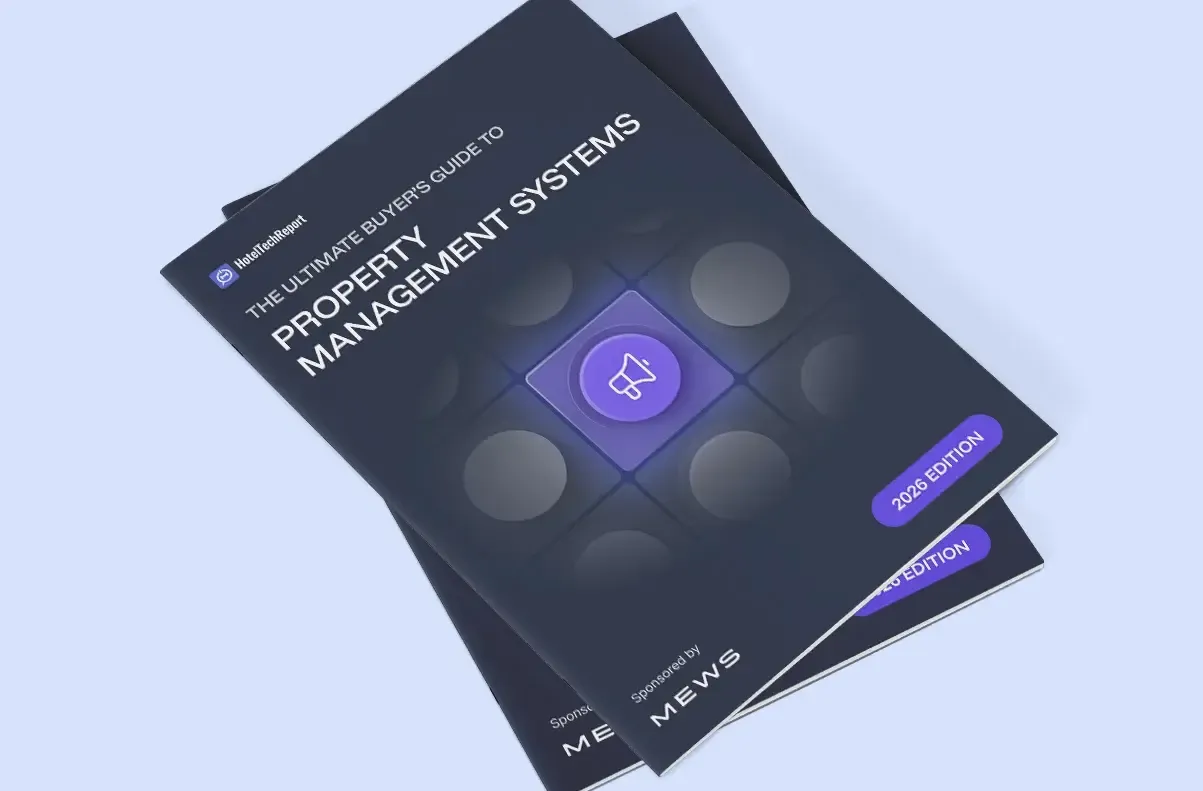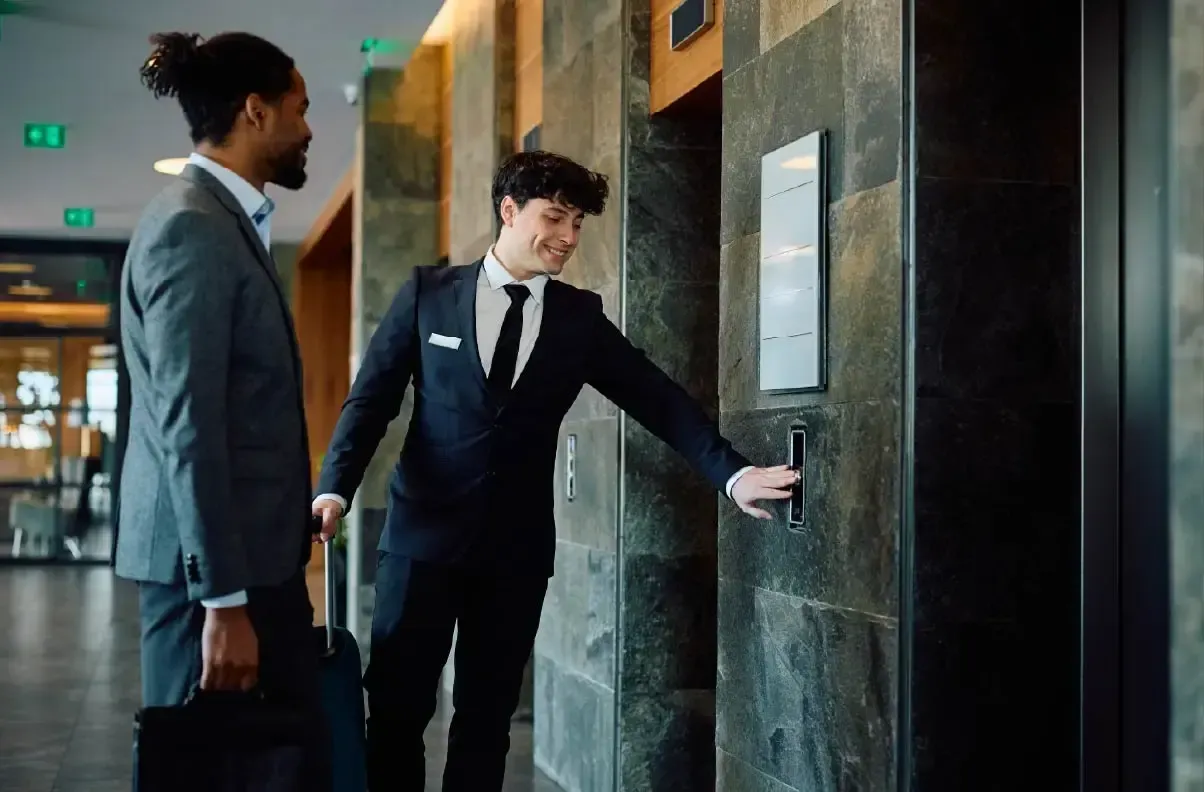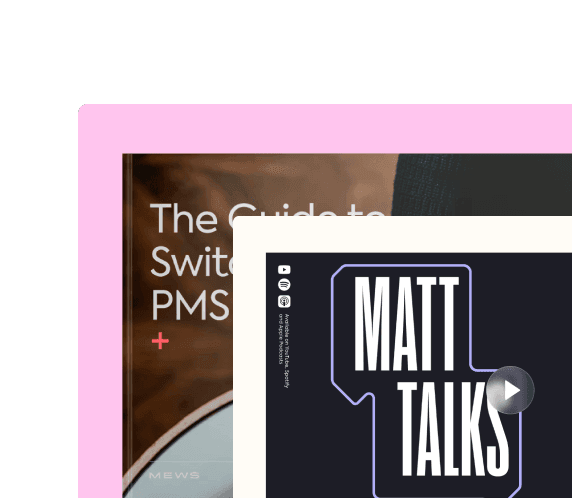SMART hotel goals - Specific, Measurable, Achievable, Relevant and Time-bound - are a cornerstone of hotel success. Why? Because clearly defined goals that can be tracked, are realistic, aligned with your overall strategy and have a deadline, allow your hotel to operate proactively rather than reactively.
In this article, we'll explore what hotel goals are, the benefits of goal-setting, examples of SMART goals, how to apply the SMART framework, and best practices for achieving goals, including how technology can improve hotel productivity.
What are hotel goals?
Hotel goals are strategic planning decisions that guide your property toward growth and operational excellence. They provide a vision for stakeholders, helping hotels proactively boost revenue, improve guest satisfaction and adopt sustainability-informed practices.
In the hospitality industry, involving team members in goal-setting ensures everyone feels part of initiatives that optimize processes, improve metrics and keep hotel operations running smoothly, no matter the challenges.

Benefits of setting goals for your hotel
Setting goals isn't just about checking boxes - it transforms the way your hotel operates.
Improves revenue and profitability
Whether it's optimizing pricing, increasing bookings or maximizing RevPAR, focused goals backed by measurable performance metrics allow hotels to improve revenue and profitability in real-time. Strategic goals translate into meaningful results.
Enhances guest experience
When guests feel prioritized, satisfaction improves, leading to better online reviews on your hotel's website, OTAs and booking engines. Initiatives like personalization and elevated service quality set your hotel apart and encourage repeat bookings.
Aligns team with strategy
Clear goals align your staff - from front desk to housekeeping, revenue management, and hotel operations - around a shared vision. When staff understand and believe in your strategy, they become brand advocates and actively contribute to guest satisfaction.
Supports operational efficiency
Streamlined processes save time and resources, improving overall operational performance.
Types of goals hotels should focus on
Focusing on the right hotel goals ensures that efforts create real impact, rather than chasing vanity metrics or following market trends blindly.
Revenue and financial goals
Hotel revenue growth, optimizing RevPAR and Average Daily Rate (ADR) and increasing direct bookings are core goals. Dynamic pricing and other proven strategies help achieve these targets.
Occupancy and operational goals
Maximizing occupancy, streamlining check-in/check-out and increasing contactless bookings help speed up operations while reducing front desk congestion.
Guest experience goals
Goals like personalization, loyalty program engagement and faster response times improve guest satisfaction and loyalty.
Sustainability and ethical goals
Eco-friendly operations, waste reduction and energy efficiency enhance your hotel's reputation and align with modern traveler expectations.

How to structure hotel goals using the SMART framework
A SMART goal is one that is Specific, Measurable, Achievable, Relevant, and Time-bound. For example: "Increase hotel bookings by 15% by the end of Quarter 4." This provides a clear objective and a deadline.
Specific
Define exactly what you want to achieve. Instead of "increase bookings," specify "increase bookings by 15%."
Measurable
Your hotel goals should be quantifiable. New technology like AI or a hotel PMS like Mews can help track progress in real-time. For example, you can monitor the increase in bookings through your booking engine.
Achievable
Goals should be realistic. Careful planning and resource allocation ensure targets are attainable.
Relevant
Goals should align with overall hotel objectives. Micro-goals should contribute to achieving broader targets, such as profitability or guest satisfaction.
Time-bound
As part of the SMART framework, it's also important to set deadlines which create urgency. For example: "Increase upsells by 10% by the end of Quarter 3."
SMART hotel goal examples
Revenue SMART goals
- Increase direct bookings by 20% in Q1 through targeted campaigns on social media platforms.
- Improve ADR by 5% by year-end with dynamic pricing strategies.
- Generate 5 new partnerships per month, creating 4 events per year with new partners targeting local guests.
Occupancy SMART goals
- Achieve 90% occupancy during peak season by optimizing distribution channels.
- Generate 15% new clients paying full rates in low season through marketing campaigns and bundled packages.
Guest experience SMART goals
- Achieve 95% customer satisfaction through positive online reviews.
- Boost loyalty program sign-ups by 20% in 8 months through personalized offers.
- Maintain an average OTA review score of 4.8/5, using push notifications to collect real-time feedback.
Sustainability SMART goals
- Reduce plastic usage by 5% within 12 months by providing refillable water bottles and amenities.
- Eliminate all single-use plastics in guest areas by 2030.
Best practices for achieving hotel goals
- Regularly review and adjust goals based on performance data.
- Don't do it alone! Involve your team in goal-setting to encourage engagement and accountability.
- Monitor hotel industry KPIs and celebrate milestones to maintain momentum.
- Start small to create a sense of achievement and build confidence.
- Use guest satisfaction surveys to inform goal-setting and identify areas for improvement.
Achieving hotel goals with Mews
Mews' cloud-based hospitality platform can help hoteliers set and achieve hotel goals efficiently:
- Streamline operations with task management, automated reporting and property management system dashboards
- Enhance guest experience with check-in kiosks, virtual concierge and mobile check-in
- Boost revenue and upsells through integrated payment solutions and dynamic pricing tools
- Utilize integrations from all the best tools so that you can manage everything in one place
- Optimize profitability using revenue management tools that help set prices strategically
Conclusion
SMART goals aren't optional - they're essential. Clear, structured objectives drive revenue growth, enhance guest satisfaction and support sustainability initiatives. With the right tools, like Mews PMS, your hotel can turn ambitious targets into measurable achievements, ensuring long-term success in a competitive market.
Download "Your Ultimate PMS Buyer's Guide 2026"

Written by

Jessica Freedman
Jessica is a trained journalist with over a decade of international experience in content and digital marketing in the tourism sector. Outside of work she enjoys pursuing her passions: food, travel, nature and yoga.










